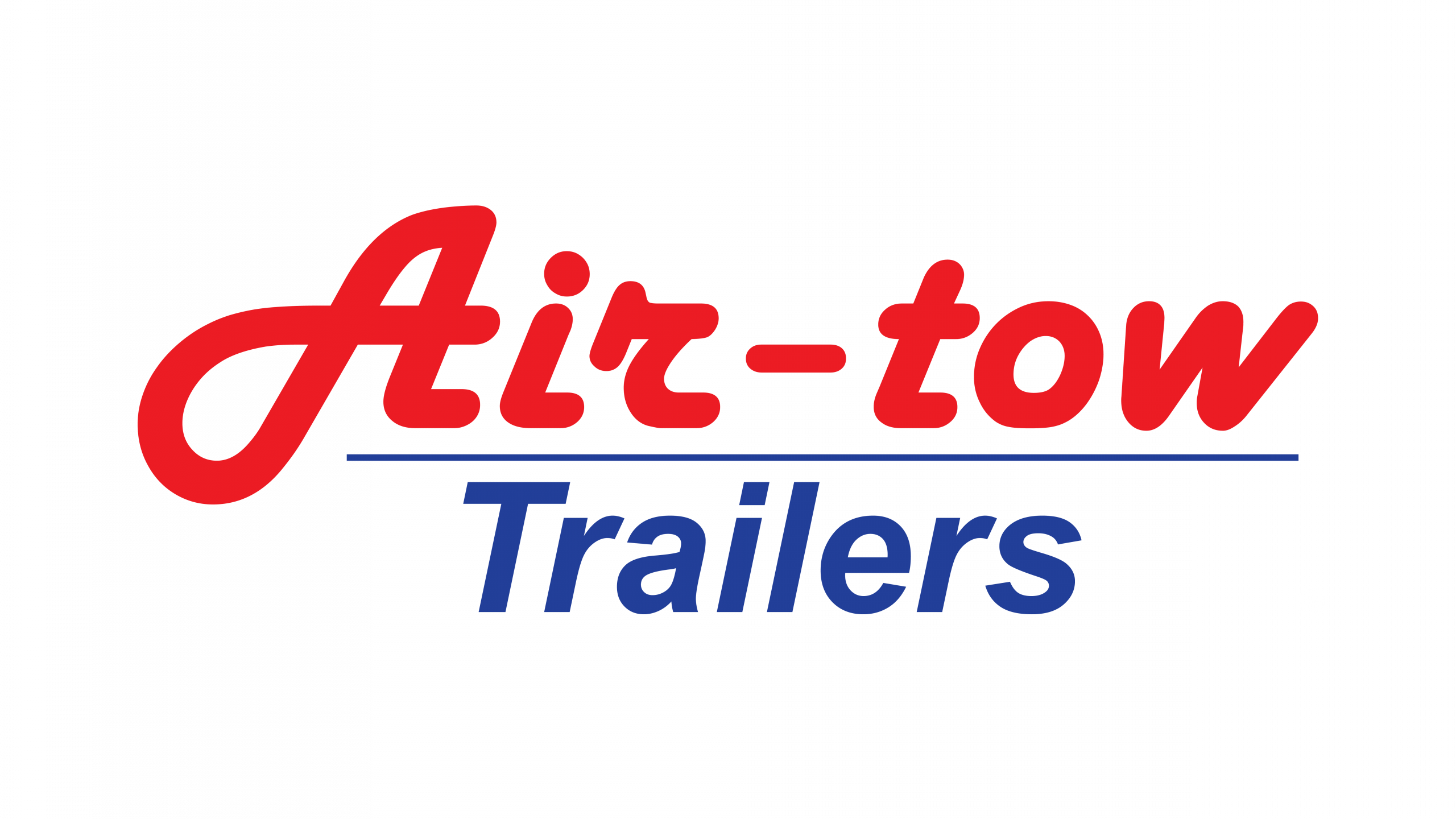Air Vs. Rubber Suspension
- June 20, 2024
- Manufacturing, Products, Uncategorized
- Posted by admin
- Leave your thoughts
Air-tow Trailers offer customers a choice between rubber and air suspension systems. Both options excel in ensuring cargo safety and reducing strain on the trailer frame, but they cater to different needs and preferences. Understanding the benefits of each can help you make an informed decision on which to choose.
Rubber Suspension
For over two decades, Air-tow has relied on the durability and performance of rubber suspension systems. These systems utilize floating axles mounted in heavy-duty roller bearings. One of the distinctive features of rubber suspension is its ability to adjust stiffness based on the pressure applied. As more pressure is exerted, the suspension stiffens, effectively handling severe shock loads even at maximum capacity. This characteristic significantly minimizes the force transmitted to the trailer frame and the cargo, ensuring a smoother ride.
Compared to traditional leaf springs, rubber suspension stands out due to its smooth ride quality and lack of wearing components. Air-tow backs its rubber suspension systems with a comprehensive three-year warranty, underscoring its confidence in its reliability and longevity. Additionally, rubber remains a cost-effective choice, making it ideal for applications where cargo can tolerate moderate shock.

Air Suspension
In contrast, air suspension supports the load on each axle with pressurized air. The airbags themselves are constructed from durable materials similar to those used in tires, ensuring longevity and reliability over years of service. What sets air suspension apart is its sophisticated automatic management system. Equipped with a solid-state electronic control system, air suspension continuously monitors the height of the trailer suspension. It adjusts air pressure automatically using an onboard air compressor and vent valve to maintain optimal ride height. This feature is particularly beneficial as it enhances stability and ensures consistent performance regardless of load variations.
Air suspension is renowned for delivering the smoothest rides, minimizing shocks and vibrations that could potentially damage sensitive cargo. This makes it a preferred choice for transporting items like ATMs or electronics, where a gentle ride is paramount to prevent internal damage.

Choosing the Right Suspension
Several factors come into play when deciding between rubber and air suspension for your Air-tow trailer. Rubber suspension, included as standard across all trailers, offers reliability, durability, and a smooth ride at a lower cost. It’s well-suited for general applications where shock absorption is important but not critical.
On the other hand, air suspension represents an upgrade option. While it comes at a higher initial cost, it provides exceptional ride comfort and protection, making it indispensable for transporting fragile or sensitive cargo. The automatic height adjustment feature ensures consistent performance and reduces the need for manual intervention during operation.
Conclusion
In conclusion, both rubber and air suspension systems from Air-tow Trailers offer robust solutions for various hauling needs. Rubber suspension provides a dependable and cost-effective choice for most applications, backed by years of proven performance and a comprehensive warranty. Alternatively, air suspension elevates protection and safety, which is particularly beneficial for transporting delicate loads over long distances.
Ultimately, the choice between rubber and air suspension depends on your specific requirements, budget considerations, and the features of your cargo. For personalized guidance on selecting the ideal suspension system for your needs, reach out to Air-tow Trailers today. Their expertise can help ensure your trailer is equipped to deliver optimal performance and protection for your valuable equipment.

